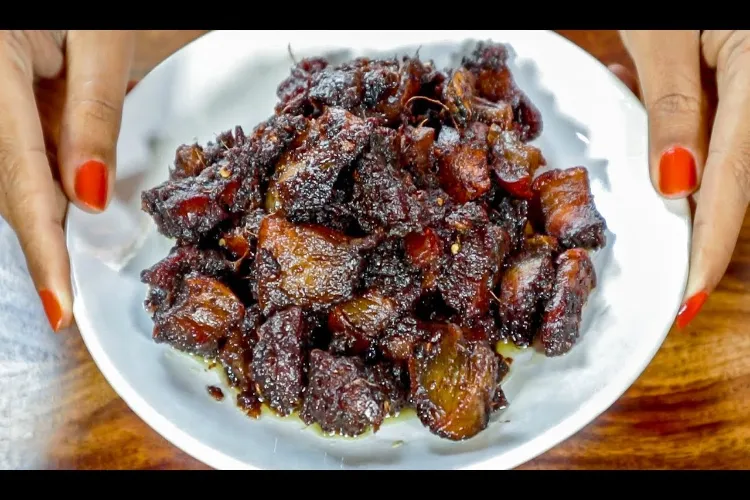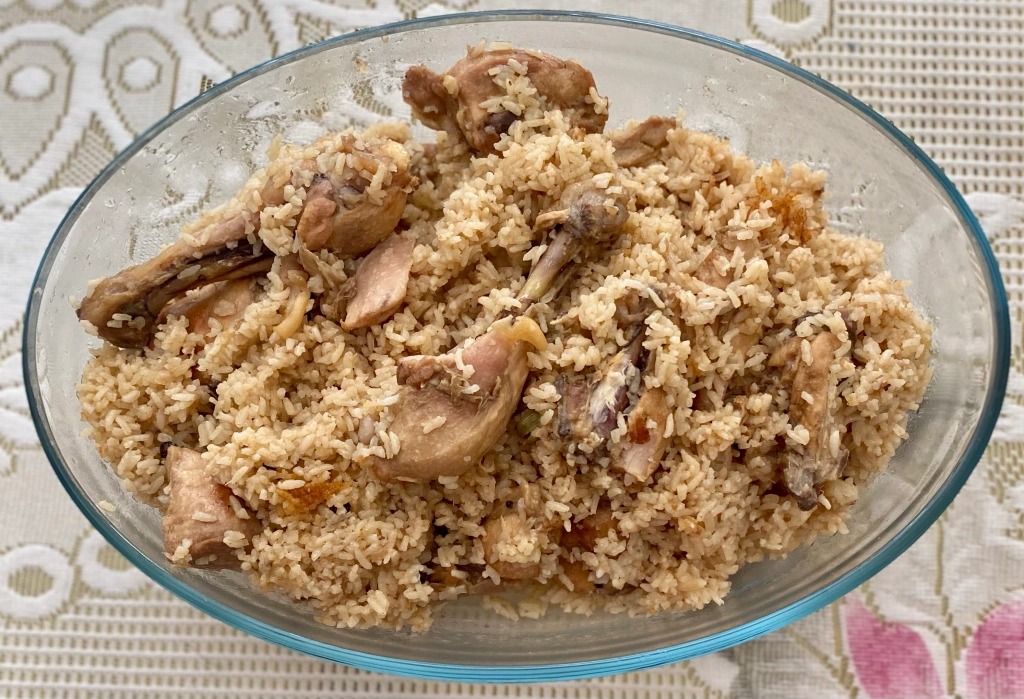.webp)
Imtiaz Ahmed
North Eastern India is not only diverse in culture but also in food habits. While a majority of the indigenous tribes of the region prefer non-spicy boiled food, the plains dwellers of Assam and Tripura have similarities in food habits with that of West Bengal.
Unlike Muslims from other parts of the country, the indigenous Muslims of Assam, who are mostly converts, are fond of non-spicy recipes cooked with less oil. The Bengali-speaking Muslims of the state, however, prefer their platters similar to those of West Bengal.
The recipes of the indigenous Assamese Muslims are mostly similar to those of their Hindus. Tangy non-spicy fish cooked with elephant apple, tomato, and herbs, steamed rice, fish/chicken cooked in hollow bamboo stems, marinated and roasted meat, and rice flour cakes are delicacies common for both Muslim and Hindu communities of Assam. Mughal delicacies such as biryani, kebab, haleem, etc. are relatively new additions to Assam’s platter; hardly dating back to about two decades.

Smoked Mutton
The Assamese Muslims innovated a different version of biryani devoid of spice. It is called kurma pulao. Kurma pulao is perhaps the only cuisine that the Assamese Muslims can claim to be their very own recipe. Prepared with super fine Joha rice with meat kurma, the recipe is a unique quick bite of Assam only. The ingredients comprise Joha rice, meat, ginger, garlic, onion, oil (ghee), salt, bay leaves, cinnamon, black pepper, cardamom and cloves.
The little quantity of garam masala is used in raw solid form just to add flavor to the pulao. The meat is first fried with onion, garlic, and ginger paste. And then, soaked rice is added and fried for a while before warm water is added to cook. Some people add caramel instead of using artificial food colour to the recipe.
Kurma pulao is a common menu item in almost every Assamese Muslim household during Ramadan iftar and most people have it for breakfast and as an evening quick bite snack. For many, iftar is incomplete without kurma pulao. Unlike biryani, the preparation is easily digestible and does not trigger acidity and acid reflux in case of a weak digestive system of the consumer.

Kurma Pulao
Another cuisine the Assamese Muslims are fond of is smoked meat. The Assamese Muslims inherited the recipe from their indigenous inheritance. Smoked meat is popular among all the tribes of the region. The surplus meat of the animals sacrificed during Bakri Eid is smoked adding only salt and preserved for consumption later on. Some people dry the meat in the sun as well. Smoked meat is cooked with various vegetables or minced to mash with onion and green chilly as chutney. Muslims of Eastern Assam also prepare a recipe of taro stem and smoked meat along with black pepper and chili that tickles any taste bud. The excess fat gets drained during when the meat is smoked making it tastier and healthier.
Nihari is from northern India. However, the Assamese Muslims have once again made it spice-free. The lower limbs of the lamb/goat/buffalo etc. are chopped into cooking size and boiled in low flame for three to four days adding ginger, garlic, black pepper, cinnamon, cardamom, cloves, and bay leaves till the cartilage and meat on the bones become soft and the fluid becomes thick. The garam masalas are not powdered and are used just for the flavour. It is mostly consumed with chapati and rice cakes in this part of the country.
Fish and chicken being cooked in bamboo stems
Another recipe the Assamese Muslims prepare is fish/chicken cooked in a bamboo hollow. Marinated in ginger-garlic-salt paste, fish/chicken are filled into bamboo hollows along with tomato and green chillies, and are plugged with banana leaves. The bamboo hollows are then put near the fire to cook slowly. This recipe too is of tribal inheritance. The preparation is common among most of the communities of Assam.
ALSO READ: Why is Kashmir's authentic food missing from menu of Valley's restaurants, eateries?
Barring Kurma pulao, the food habits of the Assamese Muslims are all but akin to the cuisines of the rest of the communities of Assam and Northeast.
